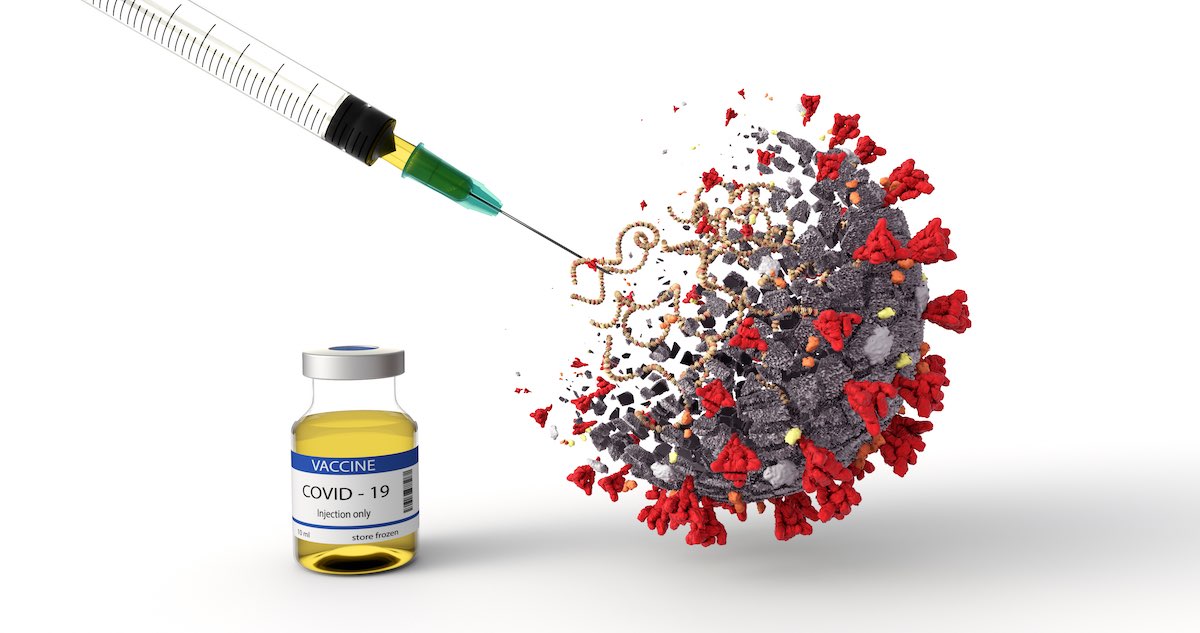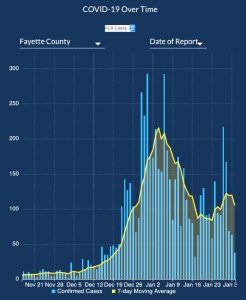With the growing availability of the Covid-19 vaccines, a common question is, “Which vaccine should I get?”
Below are two perspectives, one from the executive director of the Association of American Physicians and Surgeons and the other from the Centers for Disease Control in Atlanta. Both perspectives were released to the public today.
First is from Jame M. Orient, M.D.:
Covid-19: Which Vaccine Should I Get?
All adults will soon be eligible for a Covid jab, and people are asking, “Which one should I take?”
You may have to take what is available, but here are some considerations.
Varying percentages are given for efficacy, but these are based on small numbers of people getting infected, so the variance may be wide.
Similarities and differences:
Pfizer and Moderna products:
- These contain messenger RNA (mRNA), which goes to the ribosomes (the protein factories) in the cytoplasm of your cells and codes for viral spike protein, which is the actual “vaccine,” the substance to which your body develops an immune response.
- The mRNA is unstable—hence the cold storage requirements. This means it breaks down and is not in your body indefinitely.
- The mRNA is believed not to get into the nucleus in your cells.
Johnson & Johnson (Janssen or J&J) product:
- This is similar to the Oxford-AstraZeneca (AZ) product, which is used in other nations, mostly in Europe, but not currently in the U.S.
- These use double-stranded DNA genetically engineered to code for the spike protein.
- The DNA is delivered by a “vector,” an adenovirus that causes colds in chimpanzees but does not replicate in humans.
- The vector gets into the nucleus of all your cells, including reproductive cells.
- The DNA codes for mRNA, which gets out to the ribosomes in your cells, which manufacture the spike protein. This is a multi-step process, and thus has multiple stages for possible error.
- The DNA is relatively stable, so there are no special storage requirements. Stability is good—UNLESS you want something to eventually go away (such as a drug that is causing problems).
- The AZ jab was paused, or restricted to use only in persons older than 55 or 60, because of blood clotting problems that were seen in younger persons.
- At least four J&J sites closed at least temporarily because of adverse reactions including fainting. Some had to go to hospital. Capillary leak syndrome, a suggested cause of problems with the AZ product, may also contribute to this.
For these products, you don’t pay your money, and you generally don’t get your choice–except that you have the choice to decline. These are all experimental products. They are not FDA-approved but are given under an Emergency Use Authorization (EUA). Acceptance cannot be compelled, and recipients should be informed of this at vaccination centers. It is too early to see any long-term effects such as autoimmune diseases, impairment of fertility, or carcinogenesis.
For more information on vaccines, see lecture by pathologist Ryan Cole, M.D., or vaccines as “operating systems” by Lee Merritt, M.D.
Jane M. Orient, M.D.
Executive Director, Association of American Physicians and Surgeons
The second perspective is from the CDC:
Which COVID-19 Vaccine?
All COVID-19 vaccines currently authorized in the United States are safe and effective. The best COVID-19 vaccine is the first one that is available to you. CDC does not recommend one vaccine brand over another.
Learn more about the three vaccines that are authorized and recommended to prevent COVID-19:
==================================
Pfizer-BioNTech
Pfizer-BioNTech COVID-19 Vaccine Overview and Safety
==================================
Moderna
Moderna COVID-19 Vaccine Overview and Safety
==================================













Leave a Comment
You must be logged in to post a comment.